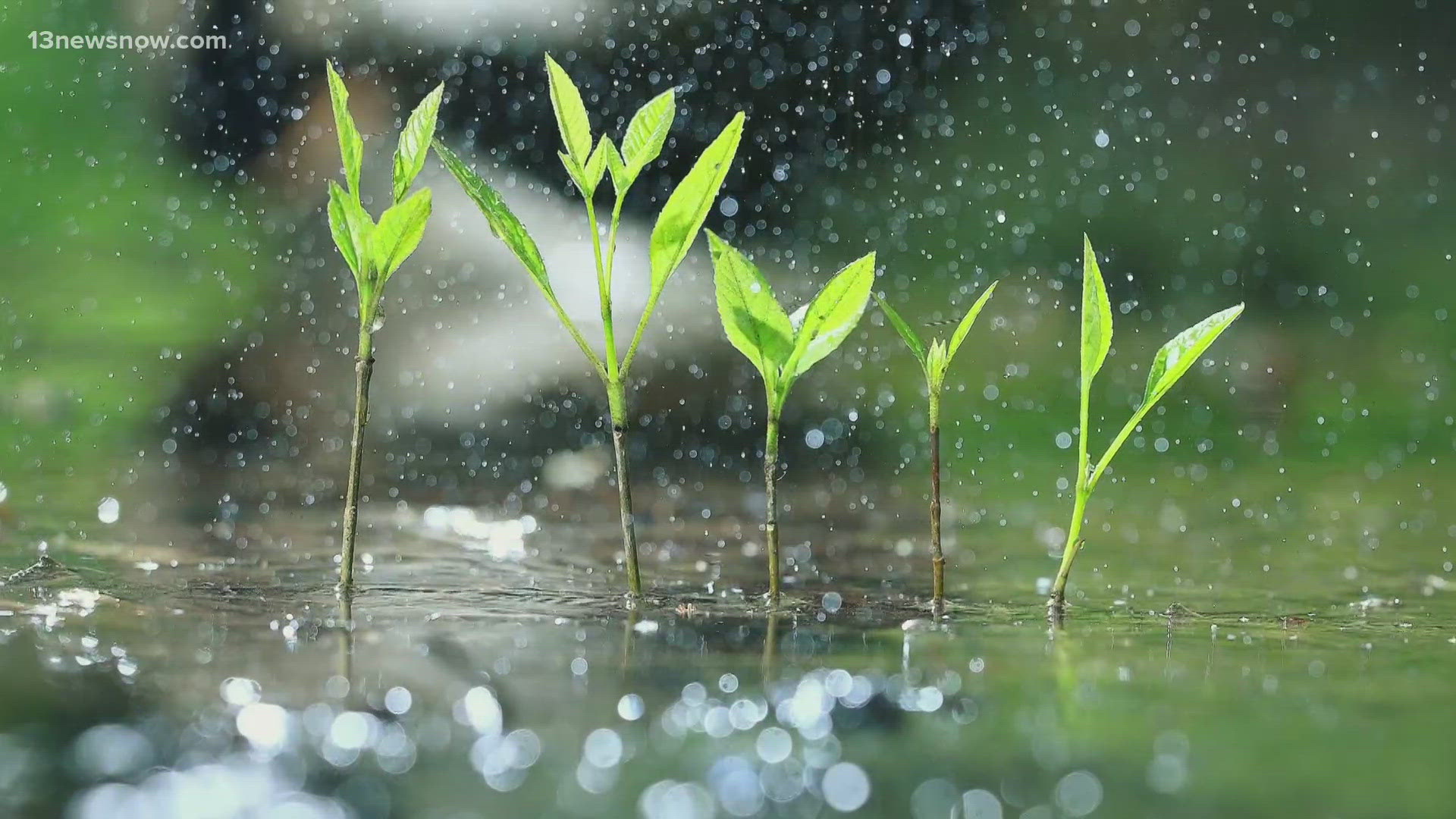NORFOLK, Va. — Whenever rain is on the way, some of us can sense it. Ah yes, that distinct smell of rain never gets old, but let's dive into why rain has a smell.
The scent can spark from three factors: lightning, soil bacteria, and plant acids.
Before any rain falls, lightning can already put on a show. When lightning strikes, it can split up pairs of nitrogen molecules and pairs of oxygen molecules in the atmosphere.
When the two oxygen atoms are separated, a stray oxygen atom can combine with diatomic oxygen to create ozone, better known as O₃. Once the ozone molecules mix with the raindrops and fall toward the ground, the scent hits our noses.
Additionally, when the rain starts to fall and the raindrops reach the ground, this leads to another way to smell the storm. When the drops hit the soil below, they interact with the bacteria found in the soil.
The rain allows the bacteria’s chemicals to rise from the ground into the air and then into our noses. The name for this specific bacteria is called geosmin.
Lastly, when rain falls on plants, plants release some acidic compounds into the air. This gives the rain an even more earthy scent.
We call the specific scent of rain - petrichor. According to the American Chemical Society, back in 1964, Australians created the word 'petrichor' to characterize the earthy smell of rainfall. The prefix 'petro' means the word relates to rocks, and 'ichor' comes from the Greek origin something that relates to fluids.
So now you know why rain has a smell! That's how your weather works!

